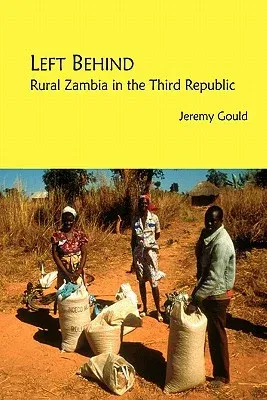Jeremy Gould
(Author)Left Behind. Rural Zambia in the Third RepublicPaperback, 31 December 2010

Qty
1
Turbo
Ships in 2 - 3 days
In Stock
Free Delivery
Cash on Delivery
15 Days
Free Returns
Secure Checkout
Print Length
160 pages
Language
English
Publisher
Lembani Trust
Date Published
31 Dec 2010
ISBN-10
9982997246
ISBN-13
9789982997249
Description
Product Details
Author:
Book Format:
Paperback
Country of Origin:
US
Date Published:
31 December 2010
Dimensions:
22.86 x
15.24 x
0.94 cm
ISBN-10:
9982997246
ISBN-13:
9789982997249
Language:
English
Pages:
160
Publisher:
Weight:
244.94 gm

